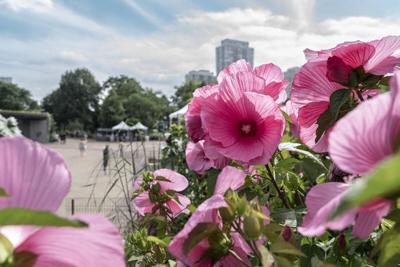According to a recent press release, Chicago's Lincoln Park Zoo has been accredited as a botanic garden by the Botanic Gardens Conservation International (BGCI). The recognition highlights the zoo's excellence in conservation and sustainability and includes it in a global network of botanic gardens committed to plant conservation and reversing the extinction threat facing plants.
The zoo, which spans 49 acres and includes over 1,800 total plant species, boasts special plant collections of North American native hydrangea and an accredited perennial herbaceous hibiscus collection. According to the Director of Horticulture Katrina Quint, the horticulture team at the zoo is dedicated to providing the highest professional standards for both plant and animal care, making it an accredited zoo, arboretum, and now a botanic garden.
“We’re proud to be a leading example of the highest professional standards for both plants and animals alike,” says Quint.
The BGCI—established in 1987—is an organization focusing on addressing plant diversity challenges and promoting the role of botanic gardens in plant conservation, policy, practice, and education. The esteemed organization recognizes botanic gardens in over 100 countries.
Alongside its recent Level III Arboretum accreditation by The ArbNet Arboretum Accreditation Program, the BGCI accreditation solidifies Lincoln Park Zoo's standing as a global leader in science-based horticulture and world-class plant and garden care.








(0) comments
Welcome to the discussion.
Log In
Keep it Clean. Please avoid obscene, vulgar, lewd, racist or sexually-oriented language.
PLEASE TURN OFF YOUR CAPS LOCK.
Don't Threaten. Threats of harming another person will not be tolerated.
Be Truthful. Don't knowingly lie about anyone or anything.
Be Nice. No racism, sexism or any sort of -ism that is degrading to another person.
Be Proactive. Use the 'Report' link on each comment to let us know of abusive posts.
Share with Us. We'd love to hear eyewitness accounts, the history behind an article.